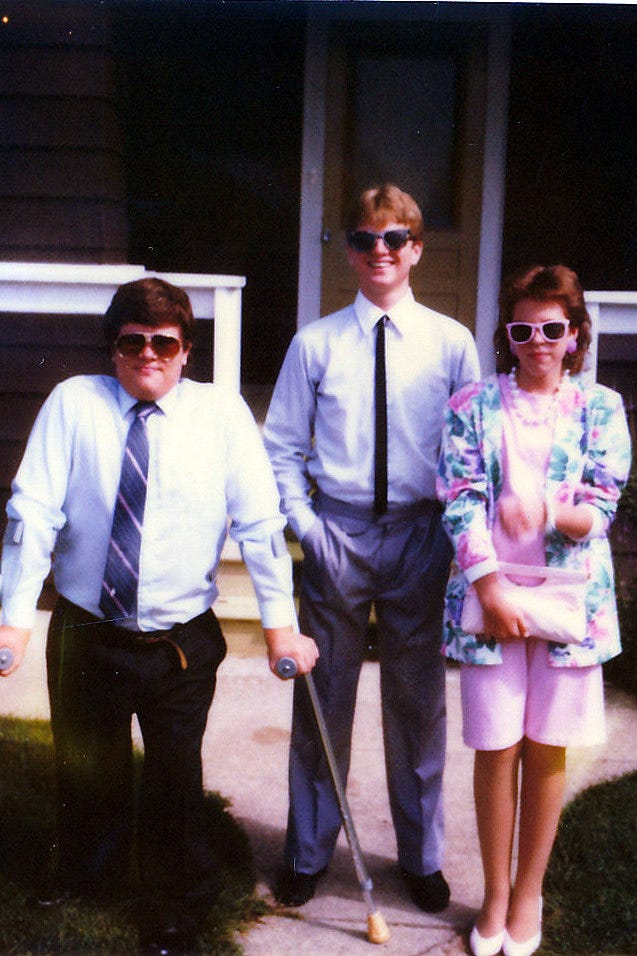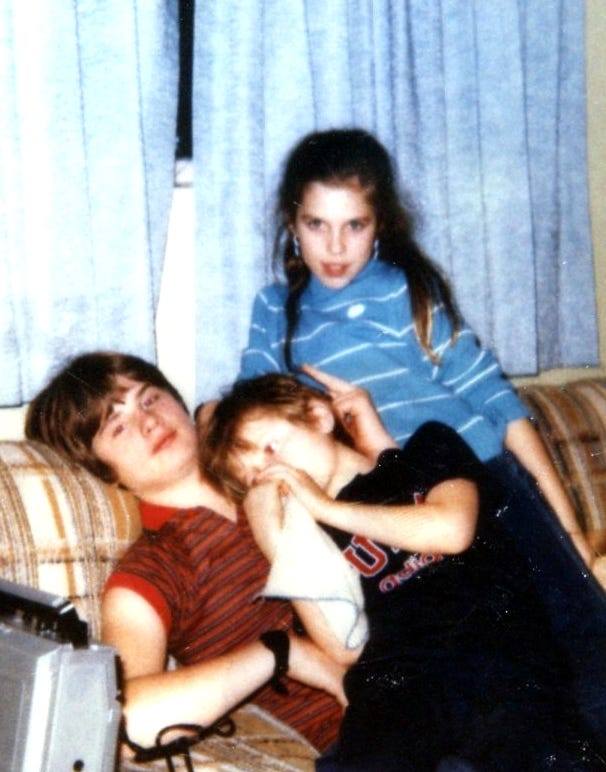My brother was a risk-taker. As I turn 50, maybe I should be too.
What my brother's "Pat the Brat" racing days can teach me about risk-taking now. How much time should I spend preserving what's doomed to decay?
My brother Patrick’s birthday and mine are four years and four days apart. Our birthdays always felt connected. But since my brother died, our birthdays feel more like reminders of mortality.
“Birthdays and memorials are one in the same. They’re both celebrations of life,” I told someone when I shared my 50th birthday weekend plans which included Patrick’s memorial Mass. In truth, neither one ended up feeling like a celebration. I ended up feeling teary and empty and needed to go inward for a few days.
Will I always feel tugged backward whenever I cross a milestone moving me forward? Will 80s songs always remind me of listening to them around the boom box, within arms reach, ready to hit play and record?


As I’m feeling my mortality more at 50, I’ve been thinking about how Patrick never seemed to fear his own.
Patrick was a risk-taker. He LOVED racing and motorsports, building cars from scratch with his buddies. I went to one of Patrick’s races in the early 90s. Truthfully, I felt out of place. And I’m pretty sure I looked out of place (especially when I started hyperventilating after his car crashed and people cheered—I still don’t get that). But I wanted to be there because it was a huge part of Patrick’s life. And I was curious too.
Though I was a daredevil kid and risk-seeker in my teen years, by college age, my brain shifted into a type of carefully calculated and rationally regulated thinking that seemed to work well on paper and later in my pharmacy career. Racing didn’t make sense. But I knew it made sense to Patrick. And it’s starting to make sense to me as I turn 50.
Patrick didn’t only take risks for fun. He was the one to stick his neck out first on someone else’s behalf, or as a close friend told me after he died, “Patrick would rather eat dirt than have someone else go without.”
I do wish Patrick lived longer. I wish he felt safe enough to accept help. I wish he had access to healthcare and safe housing. And I wish he felt like he mattered just as much as anyone else—or at least as much as another “old, fat guy,” as he’d call himself. But I also marvel at how bravely he helped people.
As I cross the 50-year milestone, I’m recalibrating my own sense of risk. Sure, I’ll take care of my health, but I don’t want to die tight-fisted and overly focused on preserving my own physical stuff doomed to decay, including my own body.
No, you don’t have to get off my lawn. It’s just grass (or a weedy mix of something).

Talking about death feels better than pretending it’ll never come. I’d rather be mindful that any day could be my last one spent inside this body.
Living each day like it could be your last is different from living each like it will. So, of course, there’s a balance. I follow general health and screening guidelines based on my own risk factors. But I am reminding myself:
Some risks are worth taking.
Some joy is worth the price.
And in the end, stuff is only stuff.
Even during my younger years, when I was losing my religion, I’ve always felt and believed that people are souls, not bodies. I know I’ll see Patrick again. My three brothers and I will be together again. Call it Kool-Aid, religiosity, naivete—yes, please, and more.
The First Birthday After the Death of a Love One
Today is my brother Patrick’s birthday. He would be turning 53, but he died last fall.
Why turning 50 made me cry, and no I don't want to be young again
I was excited about turning 50, until I did. Why do I feel stuck in a floaty boat feeling more connected to places few see?








Thank you for sharing this. I have some of those same thoughts. In May it was a year that my brother died and I am reflecting a lot on these kinds of things.